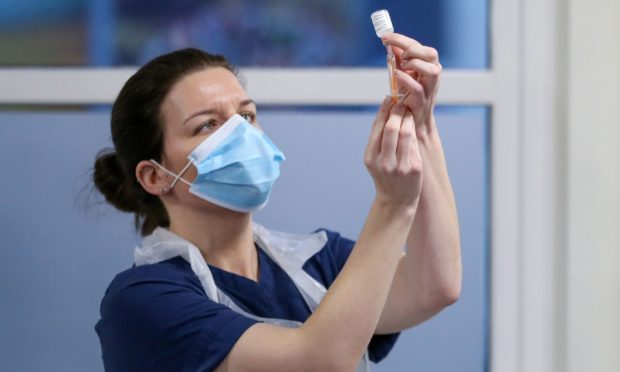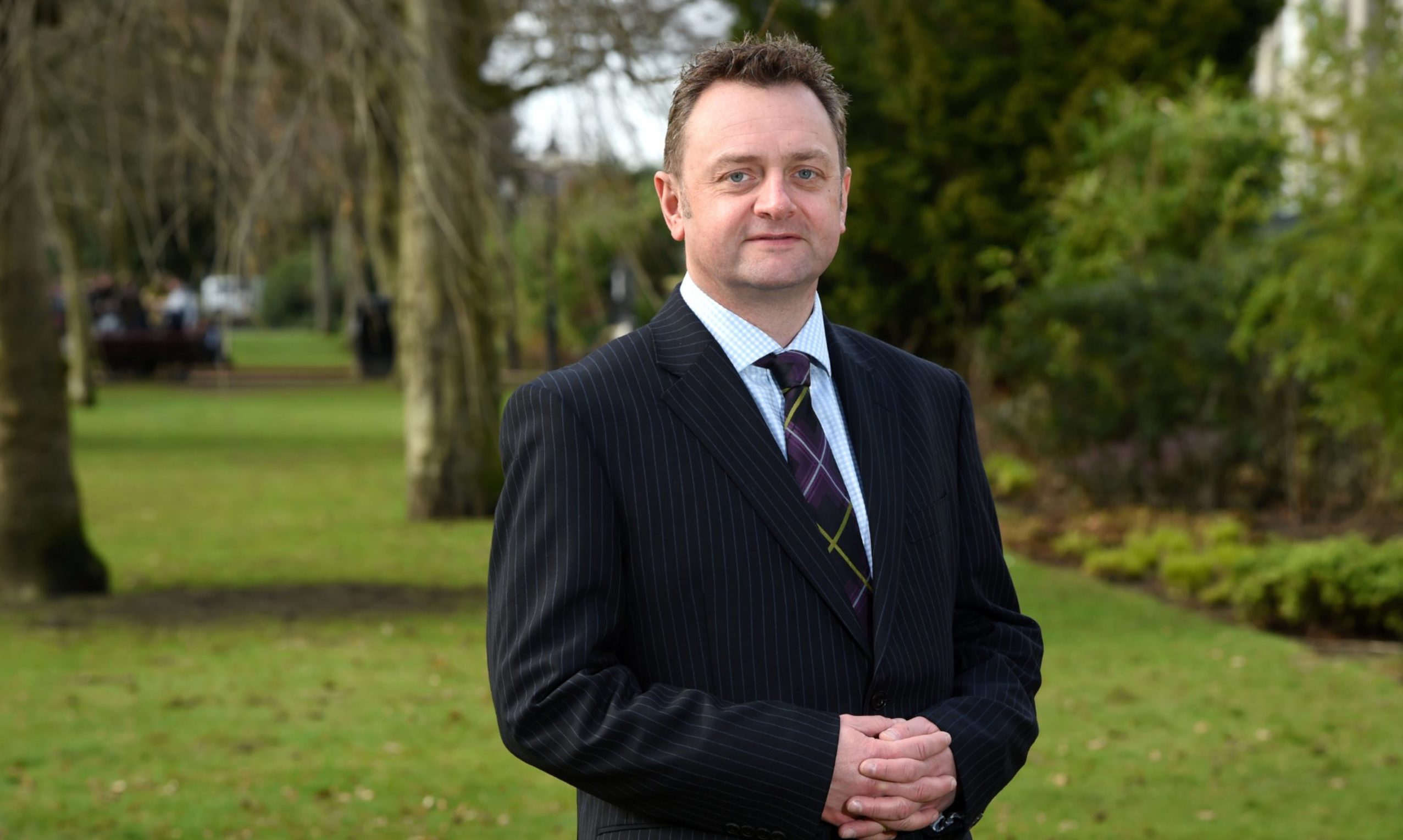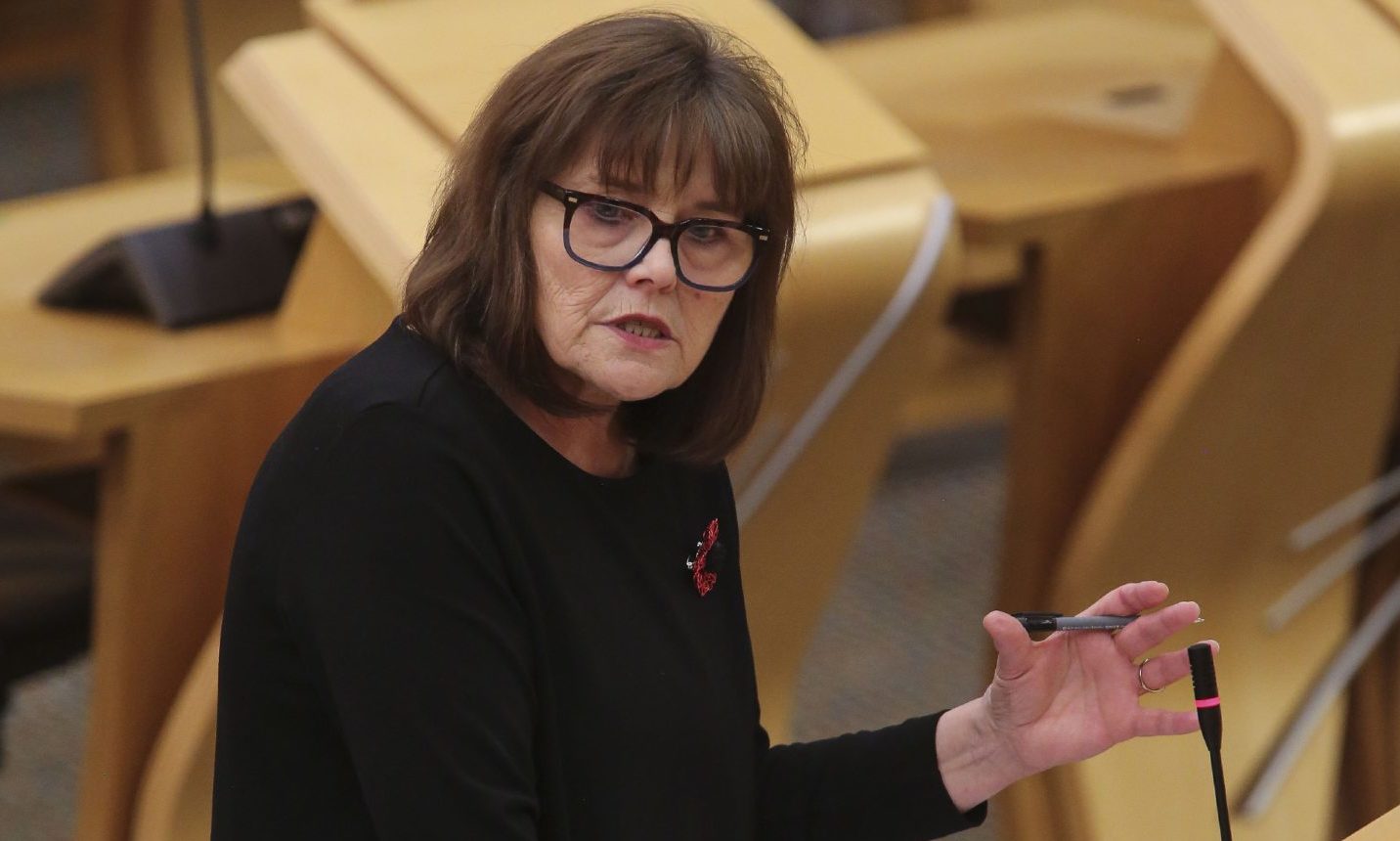Business optimism in Scotland is at its highest level since the beginning of the pandemic, with the coronavirus vaccine roll-out “buoying expectations”.
More than 110,000 Scots have already received the jab, with many more expected to in the coming weeks.
From tomorrow, a vaccine developed by Oxford and AstraZeneca will be available in more than 1,000 locations across the country.
It has already been given to people in the Highlands, Orkney, Lothian and Tayside health board areas.
Scotland has been allocated 533,640 doses of the inoculation for January, with those aged 80 or older being first contacted for vaccination.
More than 100 million doses were secured on behalf of the four nations by the UK government.
It came after a vaccine developed by Pfizer and BioNTech was approved for use in early December.
Across the country around 1.5 million people have already been inoculated with the first of two doses including, as of Saturday, the Queen, 94, and 99-year-old Duke of Edinburgh.
A total of nine priority categories for receiving the jabs have been identified, with a number of age groups ranging from 50-plus, as well as care home residents and people with underlying health conditions.
Chief medical officer Gregor Smith said last week these groups represent around 99% of all preventable Covid-19 deaths.
Hopes of a ‘swift’ recovery
The start of the vaccination roll-out early last month has led to a surge in business confidence.
Research from The Royal Bank Of Scotland said optimism about the future is now at its highest level since the beginning of the pandemic.
The rise in the organisation’s December Purchasing Managers’ Index (PMI) figure has been put down to hopes the vaccine bring the end of the pandemic and a “swift” economic recovery.
Despite optimism for the weeks and months ahead, the Scottish private sector has remained in a downturn.
The report said lockdown measures have “stifled” demand for services from potential customers.
Additionally, staffing levels at Scottish private sector firms reduced for the 11th month on a row, with cuts attributed to the pandemic, redundancies and use of the government furlough scheme.
Malcolm Buchanan, chairman of the Scotland Board at The Royal Bank of Scotland, said the “accelerated manufacturing growth” seen in December was not enough to combat the overall “ongoing weakness”.
“The reduction in new orders eased, however, with some firms reporting an upturn in orders due to higher confidence,” he said.
“Companies themselves registered the strongest level of optimism with regards to activity over the next year since February, as positive vaccine news buoyed expectations.
“But, with new restrictions in place to curb rising case numbers, the economy is likely to face further pressure before we experience marked improvement.”
Aberdeen Central MSP Kevin Stewart said: “The vaccine has provided the light at the end of the tunnel that’s giving people and businesses confidence as we move forward, but undoubtedly there are huge challenges ahead.”
‘Please take up the offer’
Health Secretary Jeane Freeman said the coronavirus vaccination programme is the largest to ever be delivered in Scotland.
More than 1,100 inoculation sites have been set up, including more than 750 GP practices, and are being staffed by 3,000 trained vaccinators.
Ms Freeman said: “When it is your turn to be vaccinated you will be contacted by your local health board and I urge you to please take up the offer.
“Please do not contact your GP but wait for your letter or phone call.
“And please remember that when the time comes for your second dose, it is crucial you get it as this is vital for longer-term protection and to complete the course.
“As ever, we are dependent on the vaccine supply and we continue to explore all possible options to speed up the delivery of all vaccines and bring forward timescales where possible.
“This work, alongside our expanded testing strategy, rigorously complying with restrictions where we live and adhering to the public health guidance, is essential to protect those most at risk and minimise further impact on the NHS and social care services.”


